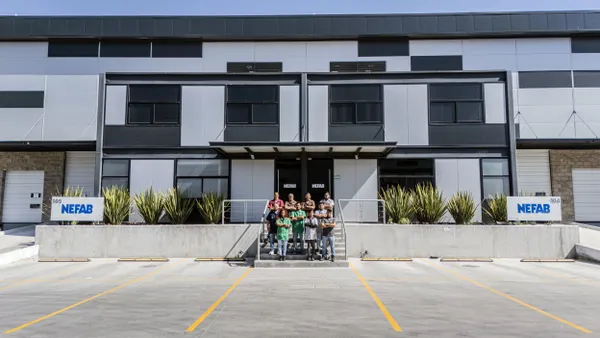Despite the optimistic hiring outlook for 2023, 91% of U.S. companies expect to face challenges, including 45% of hiring managers who say they have open positions they cannot fill.
This is according to a survey from The Harris Poll commissioned by Express Employment Professionals, in which 45% reporting open jobs marks the highest proportion since the study’s inception (42% first half of 2022, 43% second half of 2021, 40% first half of 2021, 41% second half of 2020, and 40% first half of 2020).
Those who have open positions say it is due to a lack of applicants. This includes applicants with relevant experience (47%), hard skills (46%), applicants in general (40%), and/or soft skills (31%).
Pertaining to more general hiring difficulties, hiring managers worry about increased competition in the job market (35%), available talent pool not matching the company’s needs (29%), reaching diverse candidates (23%), and difficulty assessing candidates’ skills during the hiring process (23%).
Several factors contribute to the talent mismatch for job openings including pursuing higher education, specifically bachelor’s degrees in liberal arts versus vocational and trade-specific training. Also problematic for careers requiring bachelor’s degrees and additional education, not enough students are pursuing engineering and science degrees.
Compounding this is the workforce shift with more than 75 million Baby Boomers on the horizon of retirement, without enough replacement workers to fill the void.
The skills gap continues to remain glaringly obvious in skilled trade roles, such as welders, HVAC techs, carpenters, machinists and mechanics, as well as technology roles and project management.
Beyond a lack of applicants, companies are plagued with turnover. More than a third of U.S. hiring managers (35%) predict employee turnover at their company will increase this year—a precipitous drop from earlier this year and a proportion not seen since the spring of 2020.
Unfortunately, annual turnover costs for one employee costs an average of $62,542 (e.g., cost to rehire, lost productivity) for companies, and nearly a quarter (23%) say it costs their company $100,000 or more per year. In an effort to counteract turnover, 81% of companies are planning to rehire past employees — possibly for positions open due to turnover or new roles they have yet to fill.
Typically, companies rehire either to increase their overall employee count (36%) or to keep the same level of employees (35%).
Companies anticipating increased turnover in 2023 attribute these vacancies to employees resigning (35%), better pay/benefits offered elsewhere (35%), the competitive job market (34%), and increased workplace demands (32%). Around 3 in 10 believe it will be due in part to employee feelings of being overworked (31%) and retiring (28%).
Better perks (e.g., summer Fridays, unlimited vacation days) offered elsewhere (26%) and better company culture elsewhere (21%) were also mentioned as contributing factors to increased turnover.
Other challenges employers face include finding qualified candidates (52%), increased competition in the job market (31%), and the available talent pool not matching the company’s needs (27%). Around 1 in 5 U.S. hiring managers report difficulty assessing candidates’ skills during the hiring process (22%), their pay not being competitive (21%), and reaching diverse candidates (20%).
“The lack of workers, particularly qualified workers, in America, should raise red flags for everyone from the government and educators to businesses and parents,” Express Employment International CEO Bill Stoller said. “This is a crisis that has been building for years and the fallout is only just beginning if we don’t invest in creating more qualified employees through training and education.”
Survey Methodology
The Job Insights survey was conducted online within the United States by The Harris Poll on behalf of Express Employment Professionals between Dec. 1 and Dec. 15, 2022, among 1,002 U.S. hiring decision-makers (defined as adults ages 18+ in the U.S. who are employed full-time or self-employed, work at companies with more than one employee, and have full/significant involvement in hiring decisions at their company). Data were weighted where necessary by company size to bring them into line with their actual proportions in the population. Respondents for this survey were selected from among those who have agreed to participate in our surveys. The sampling precision of Harris online polls is measured by using a Bayesian credible interval. For this study, the sample data is accurate to within + 3.2 percentage points using a 95% confidence level. This credible interval will be wider among subsets of the surveyed population of interest.










